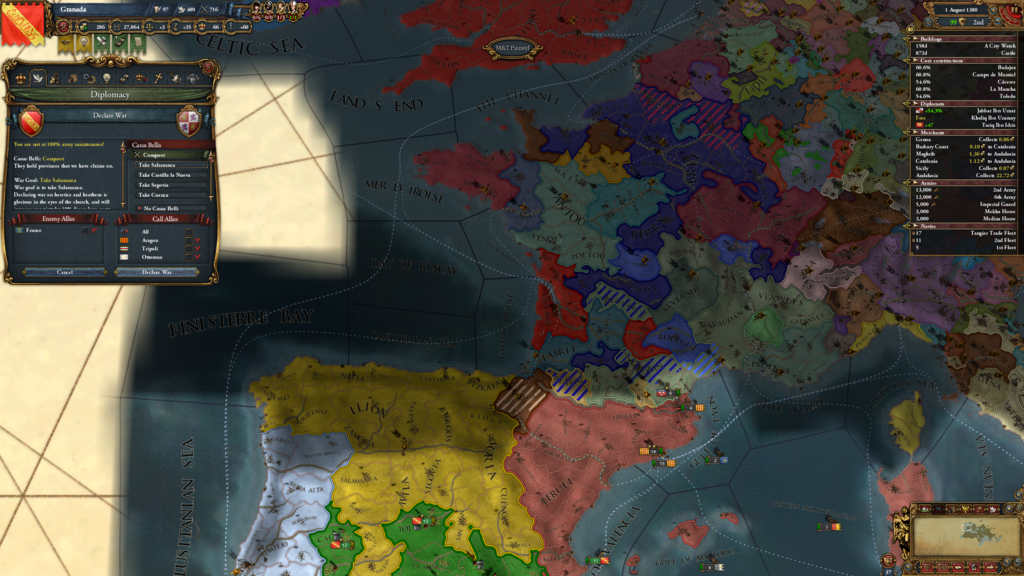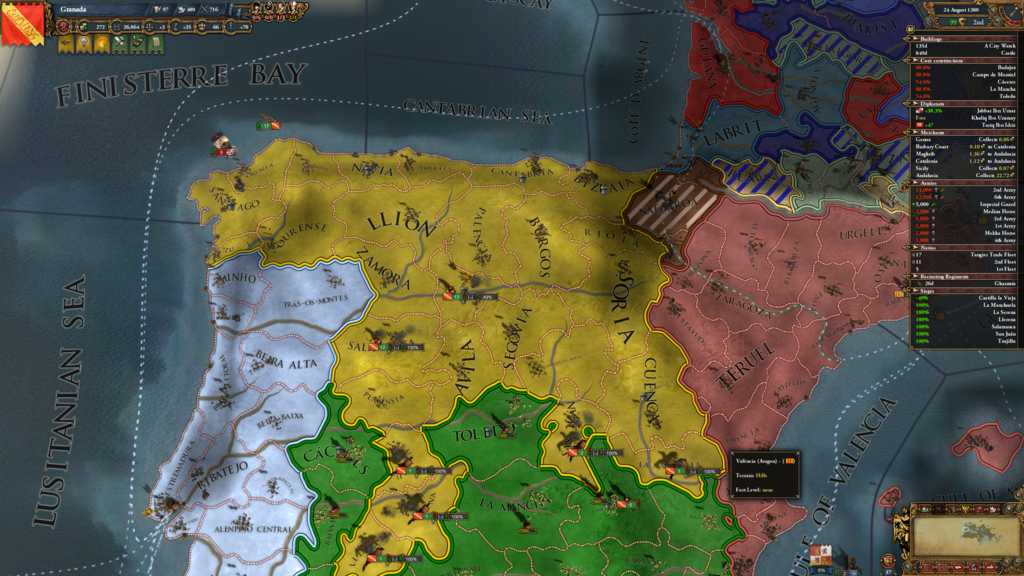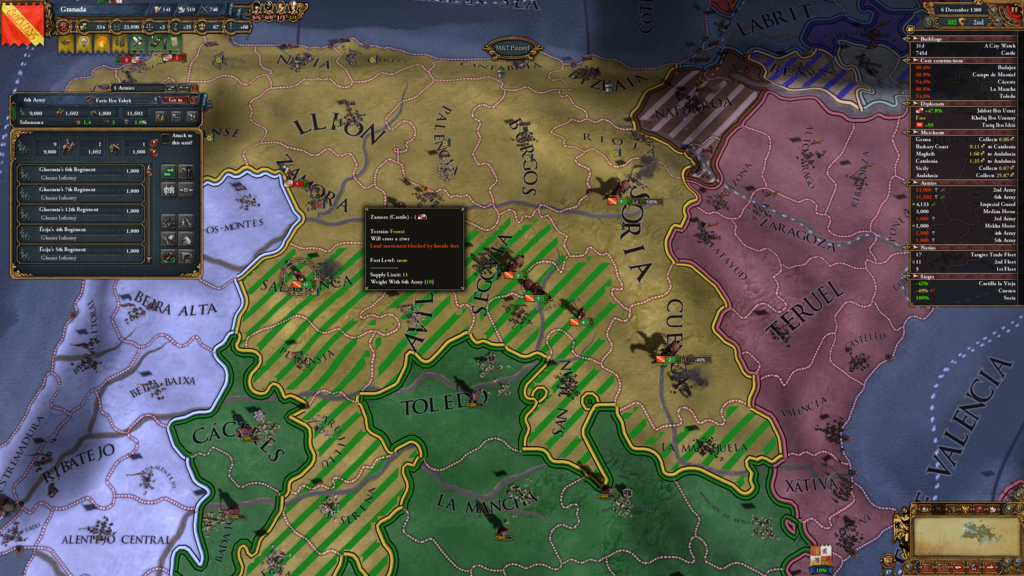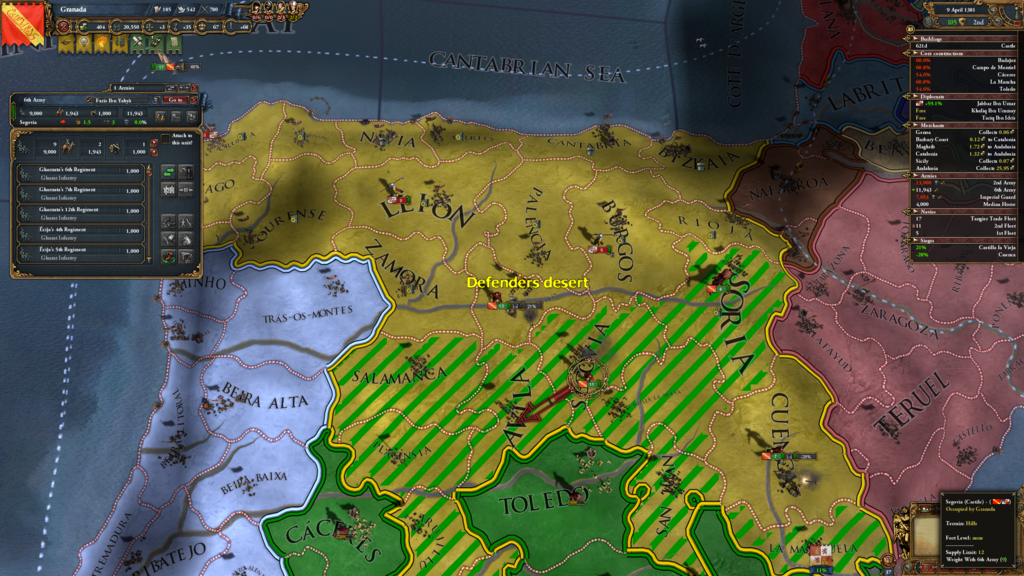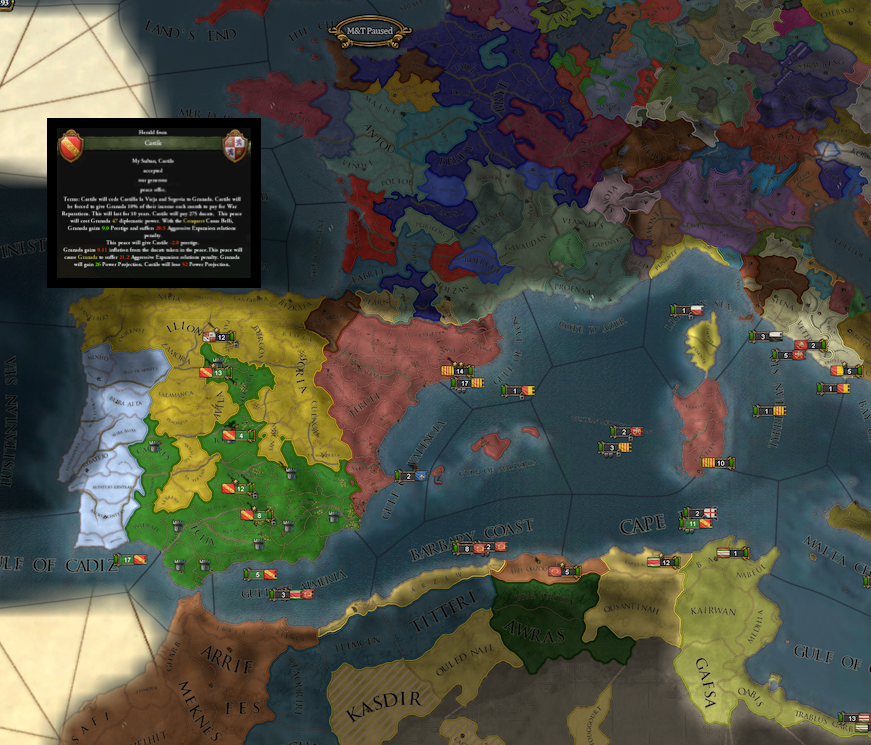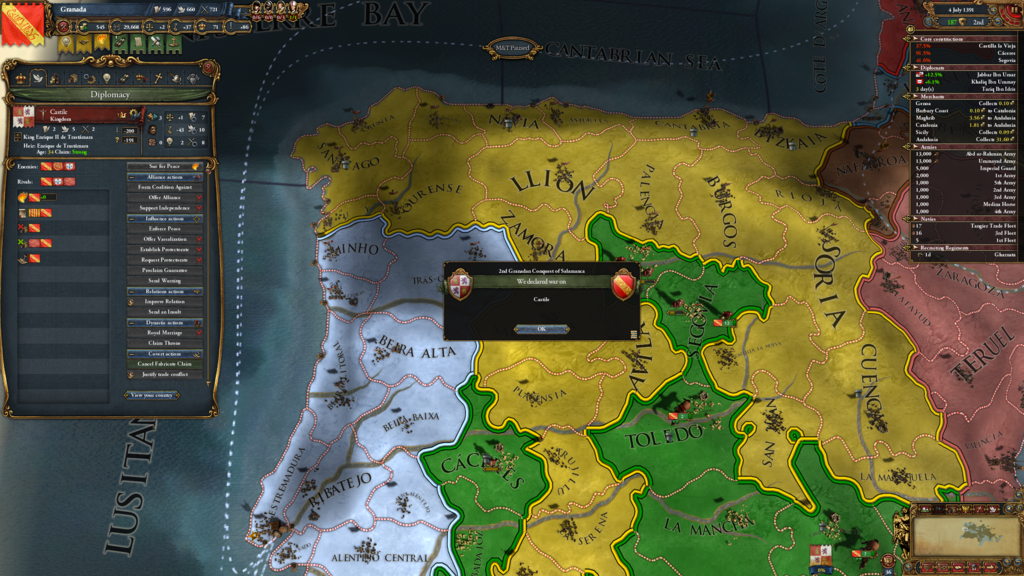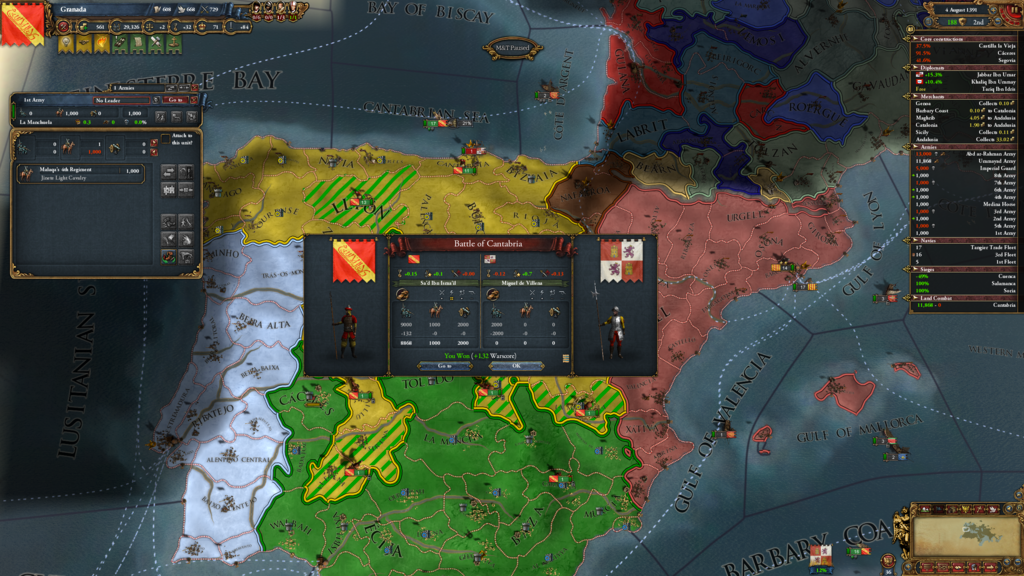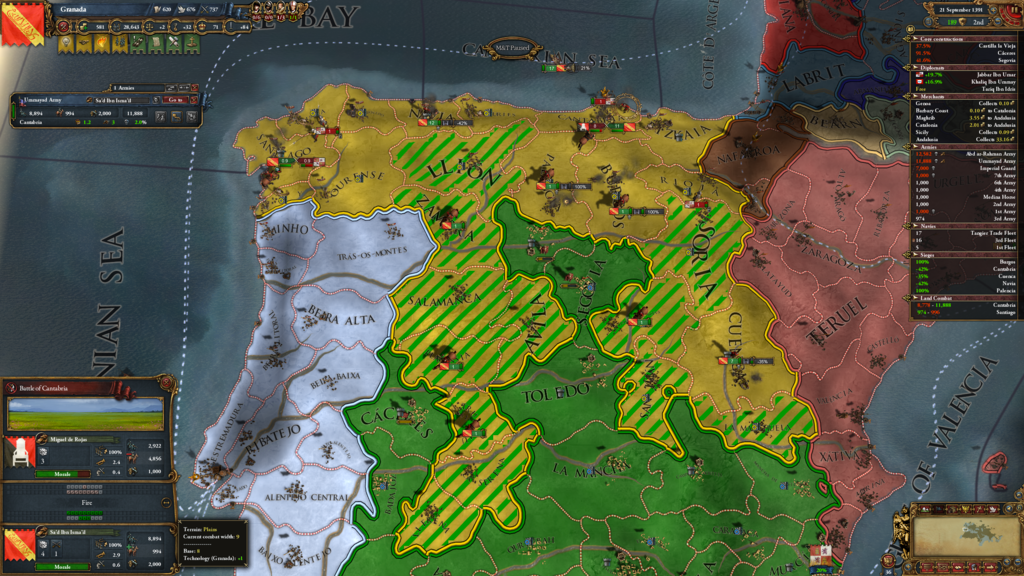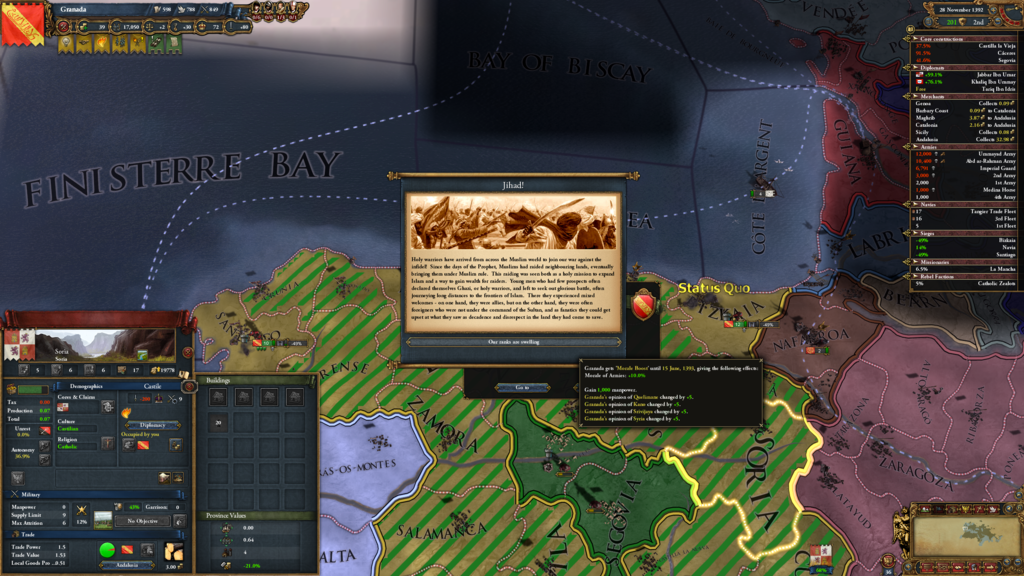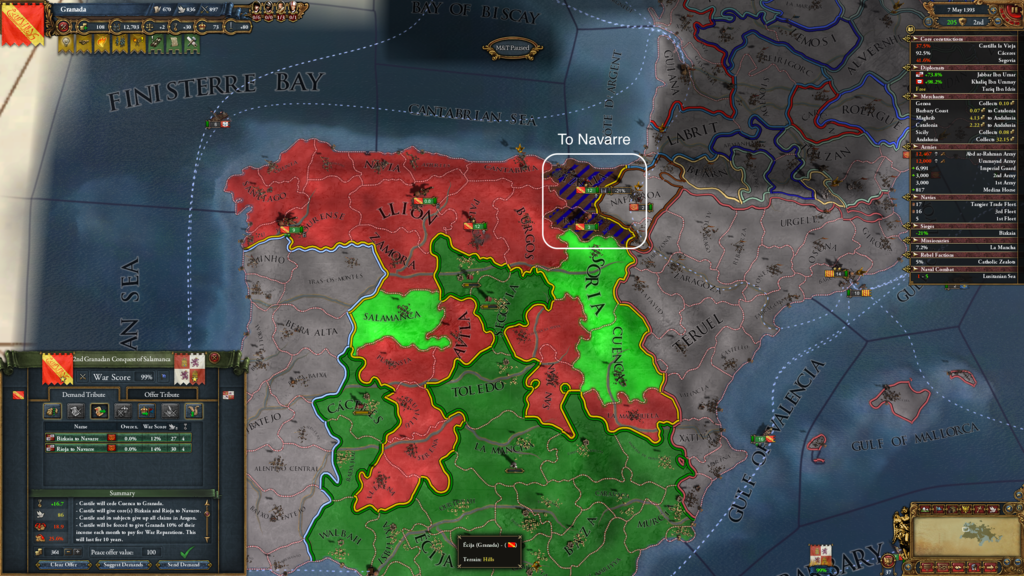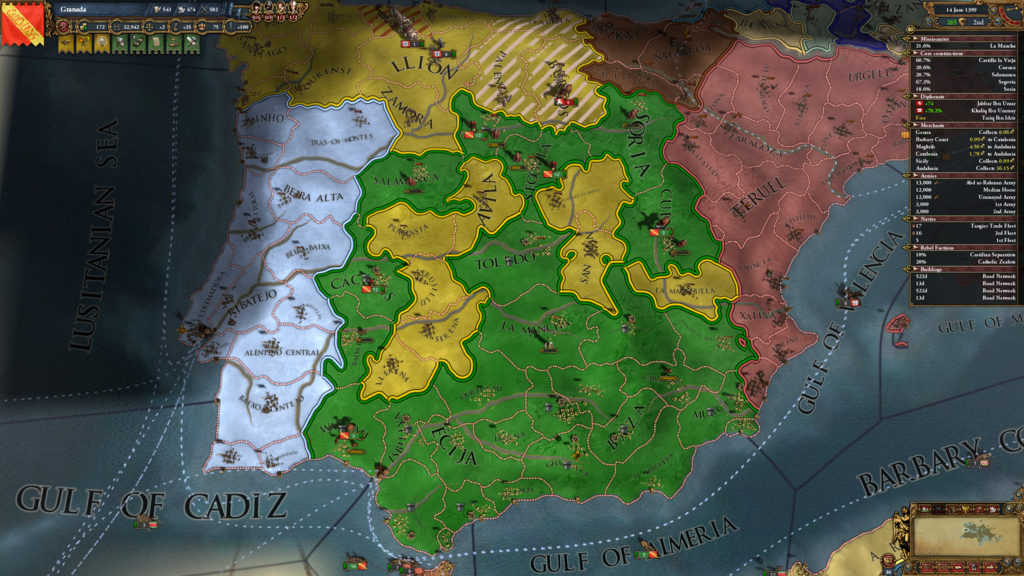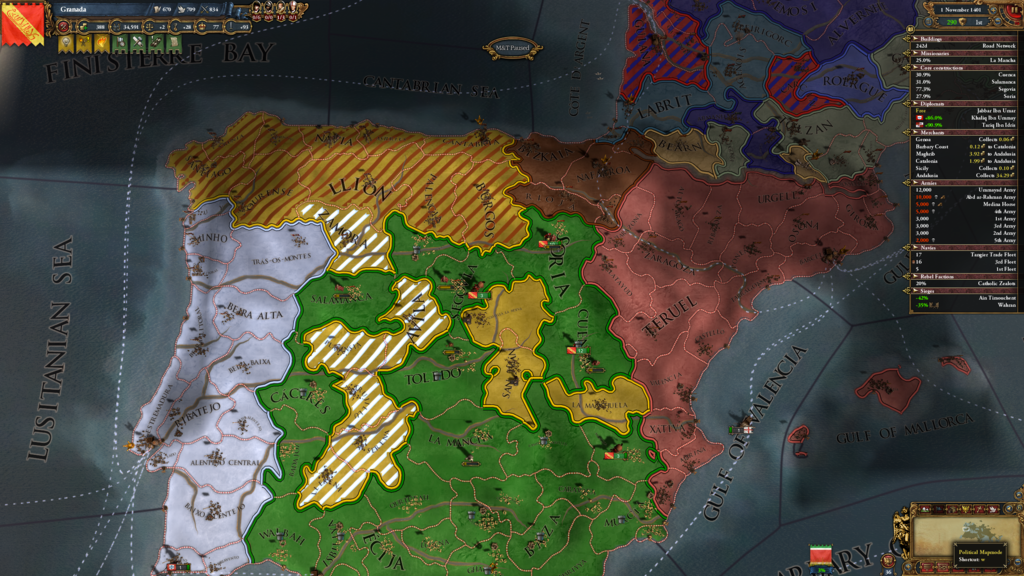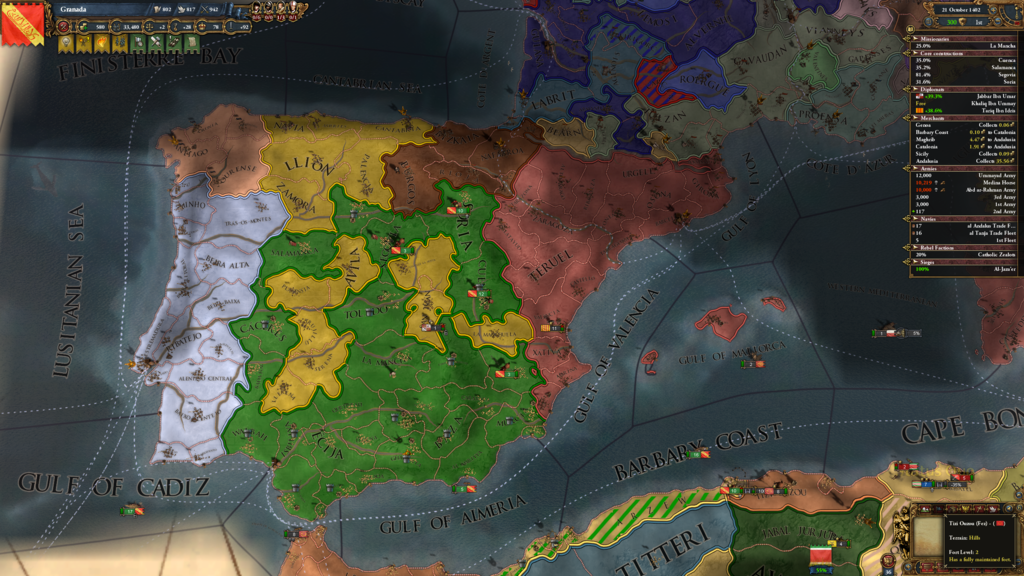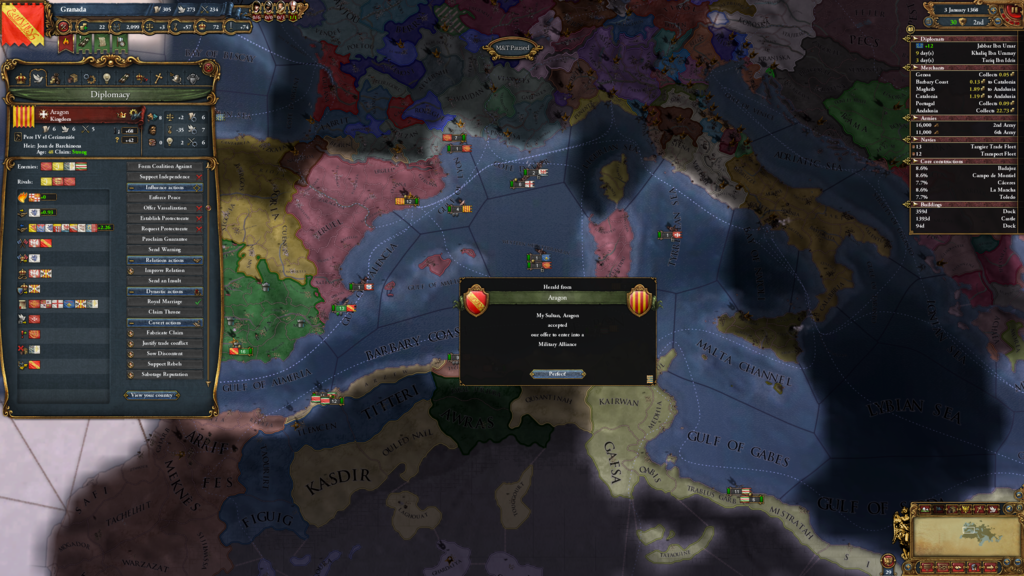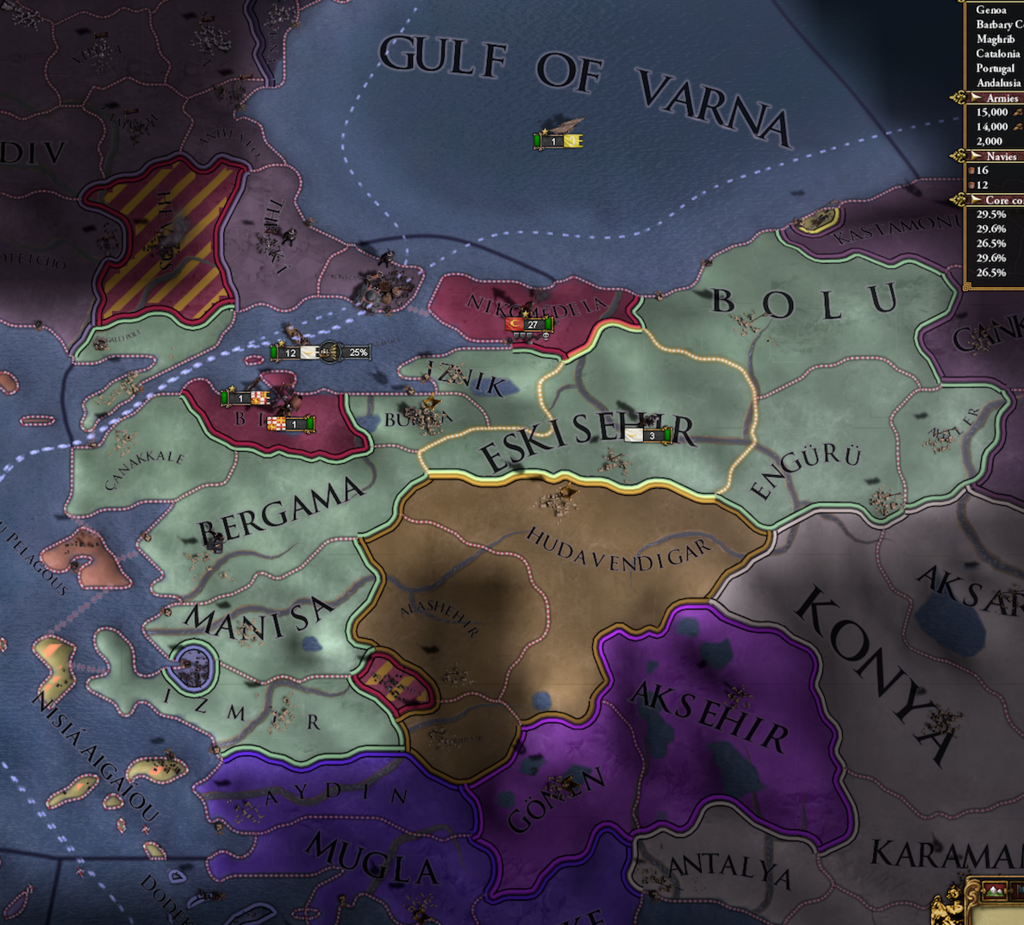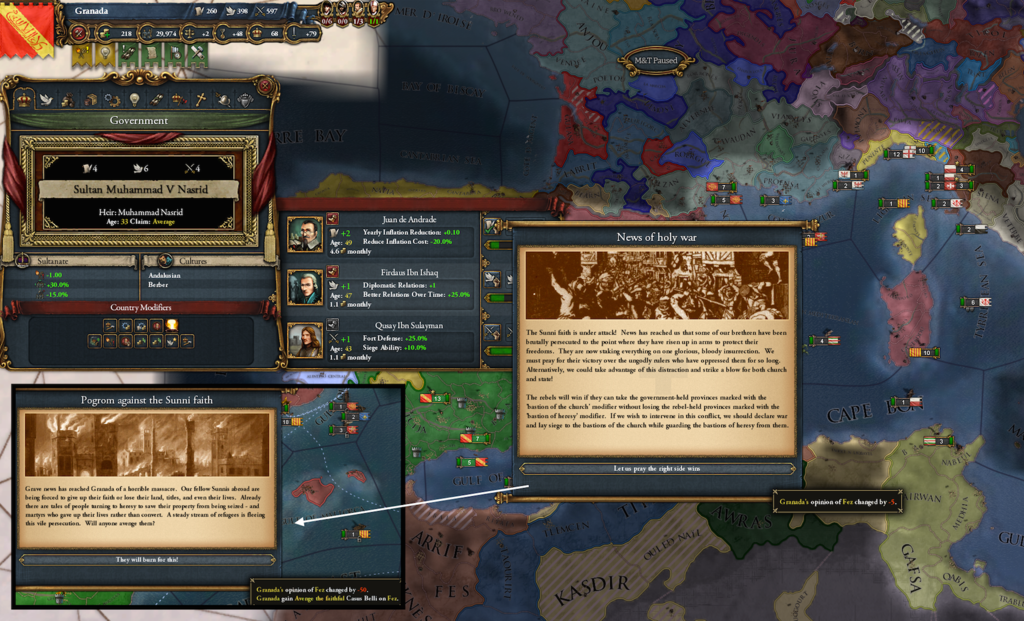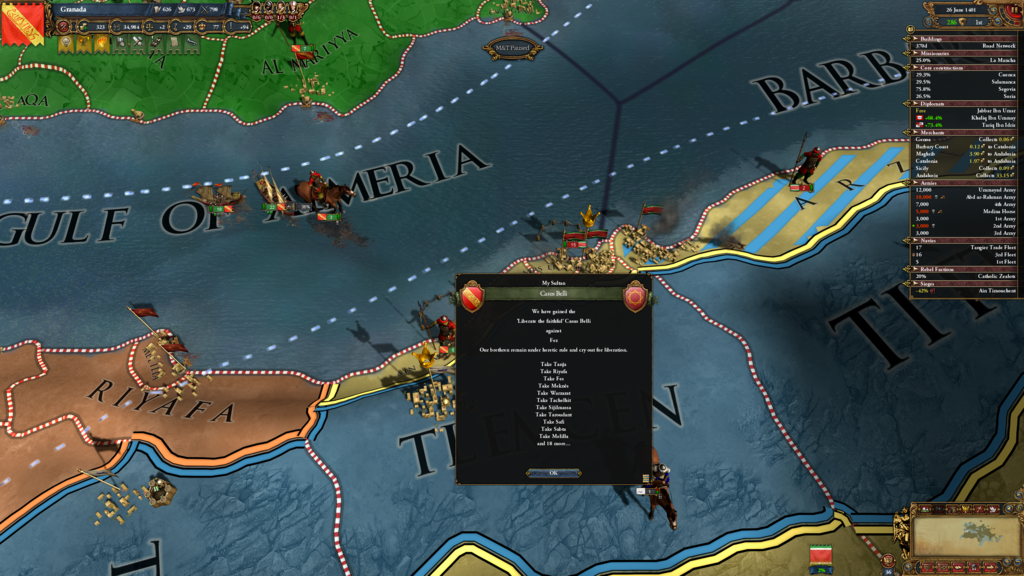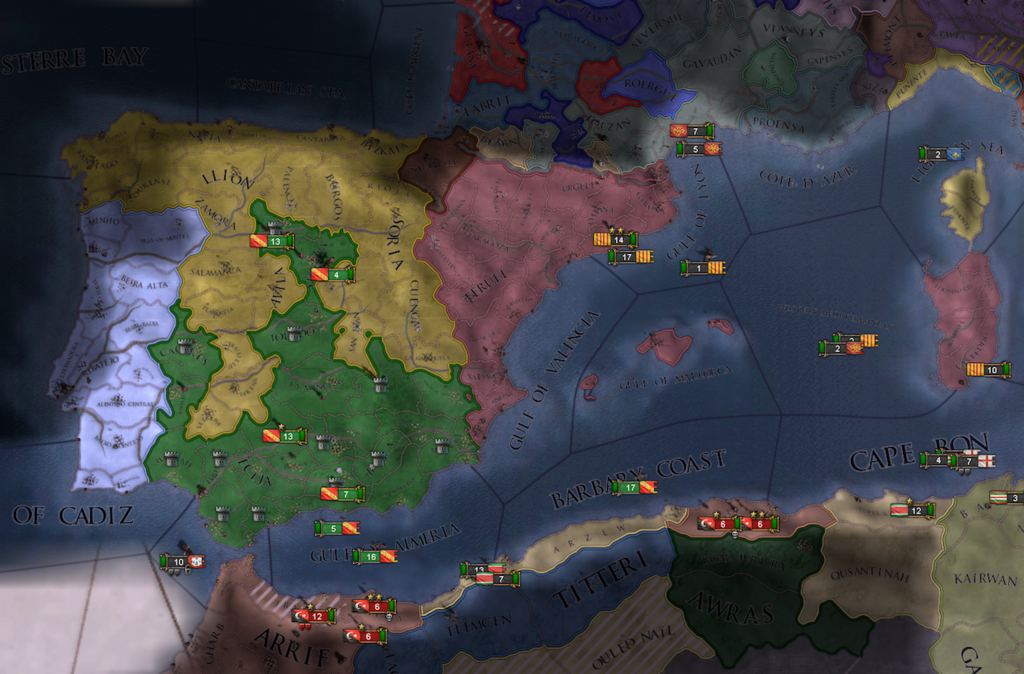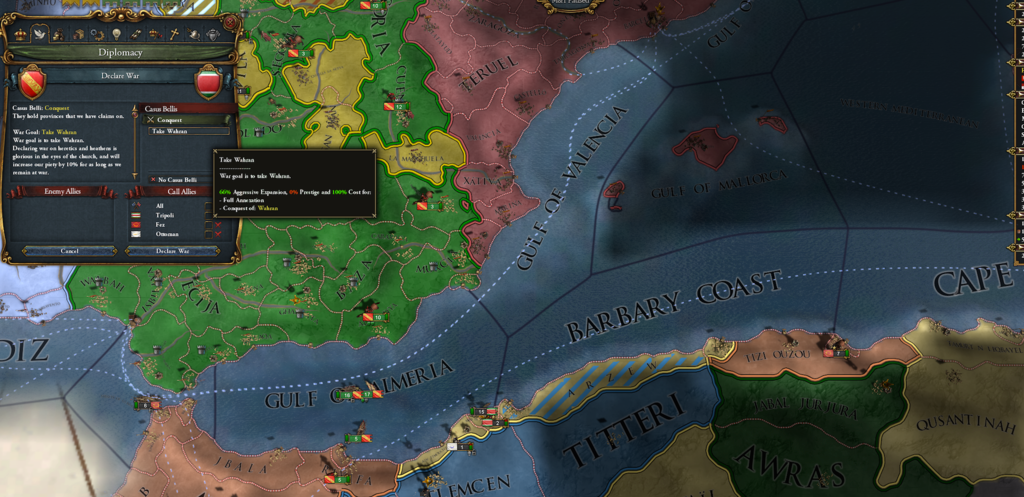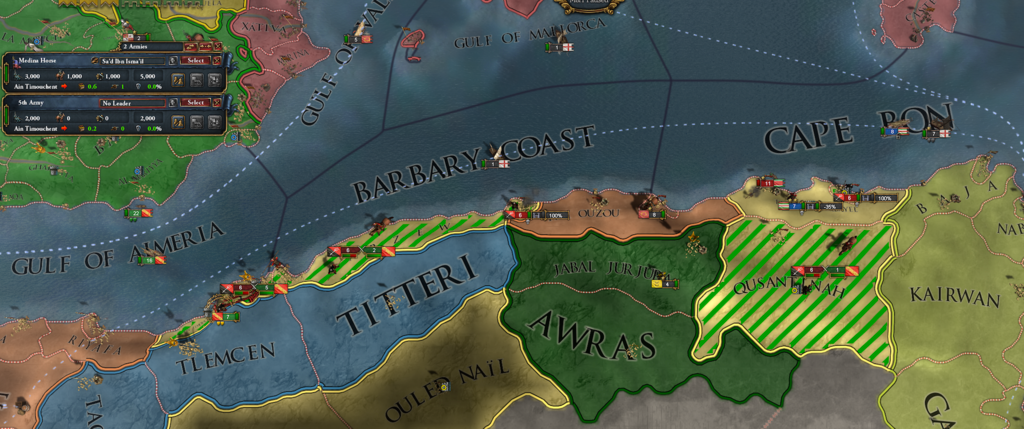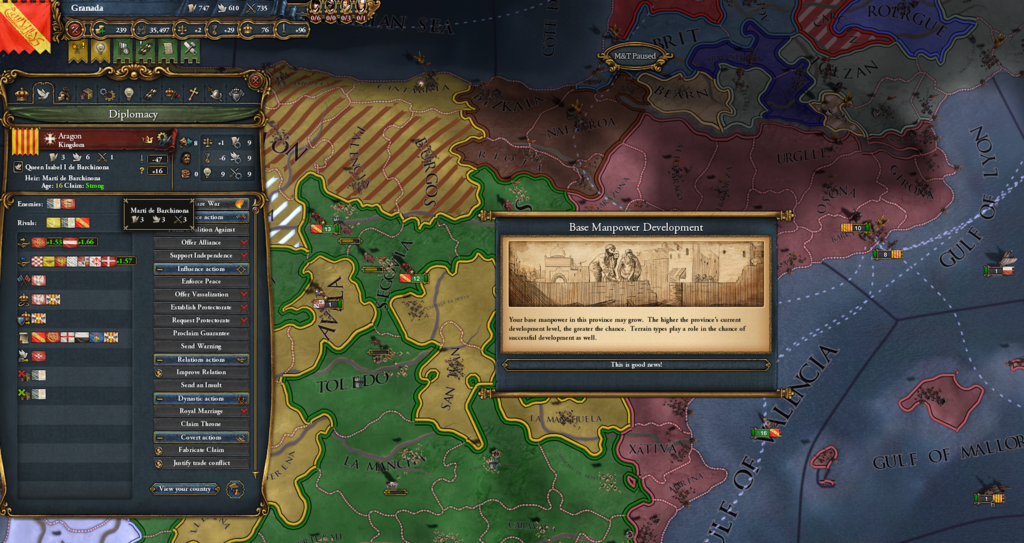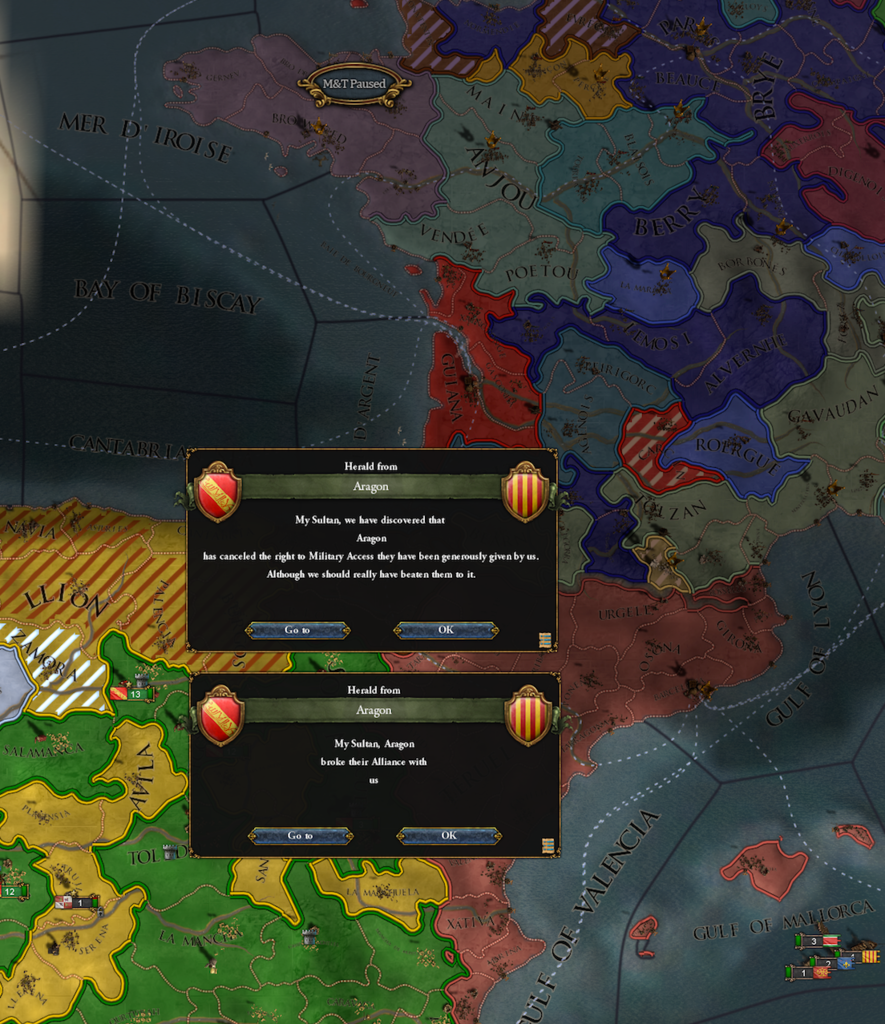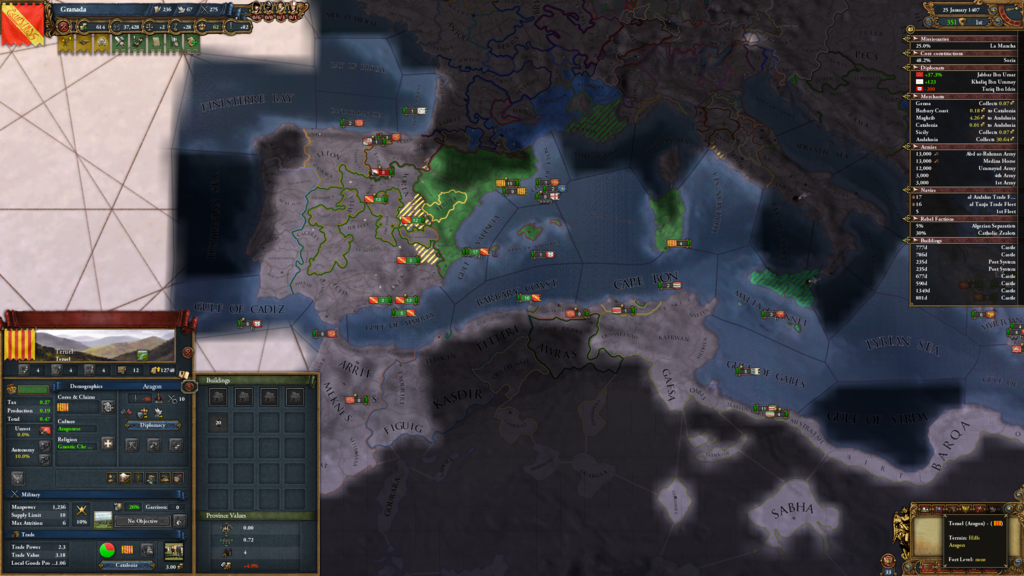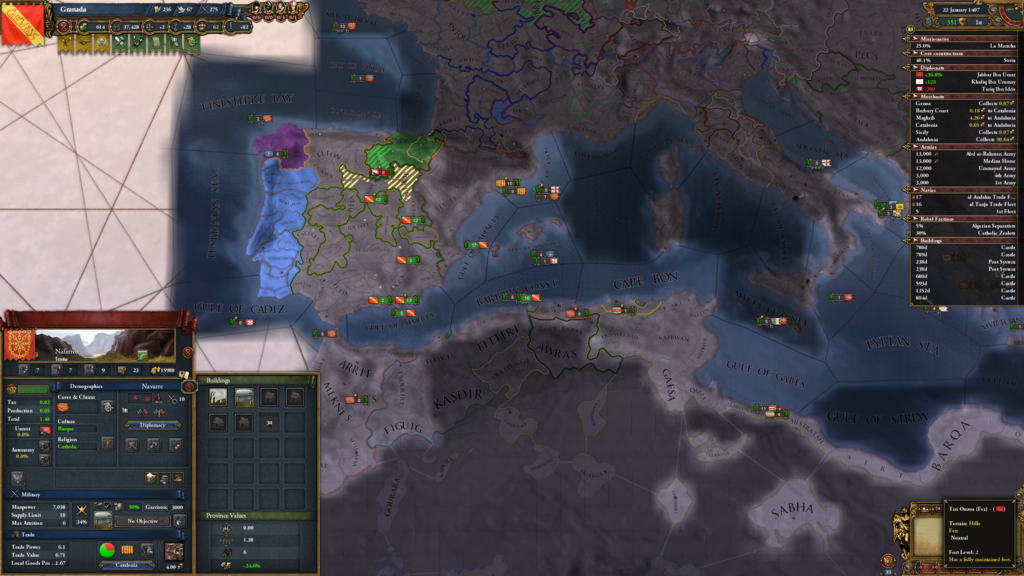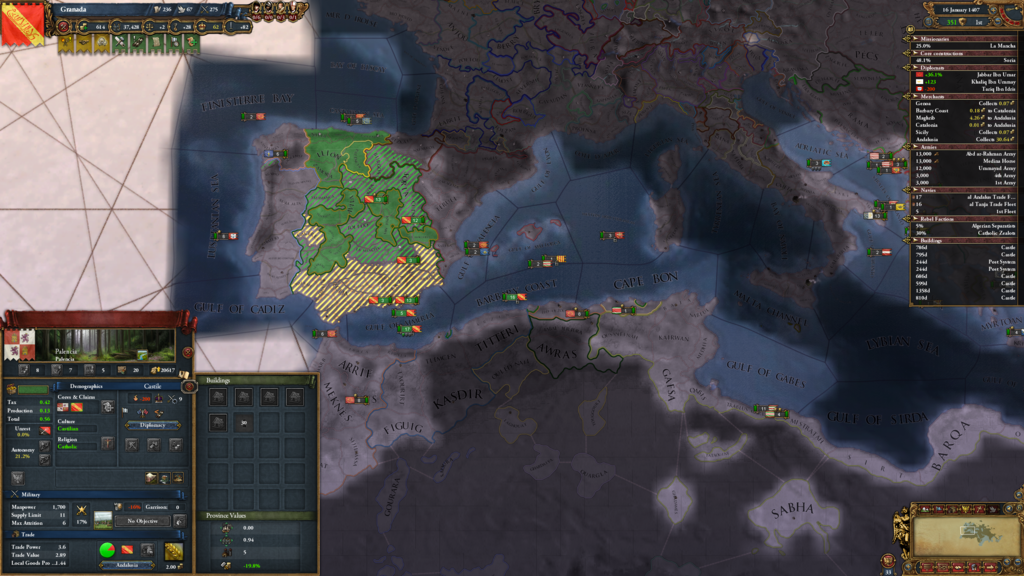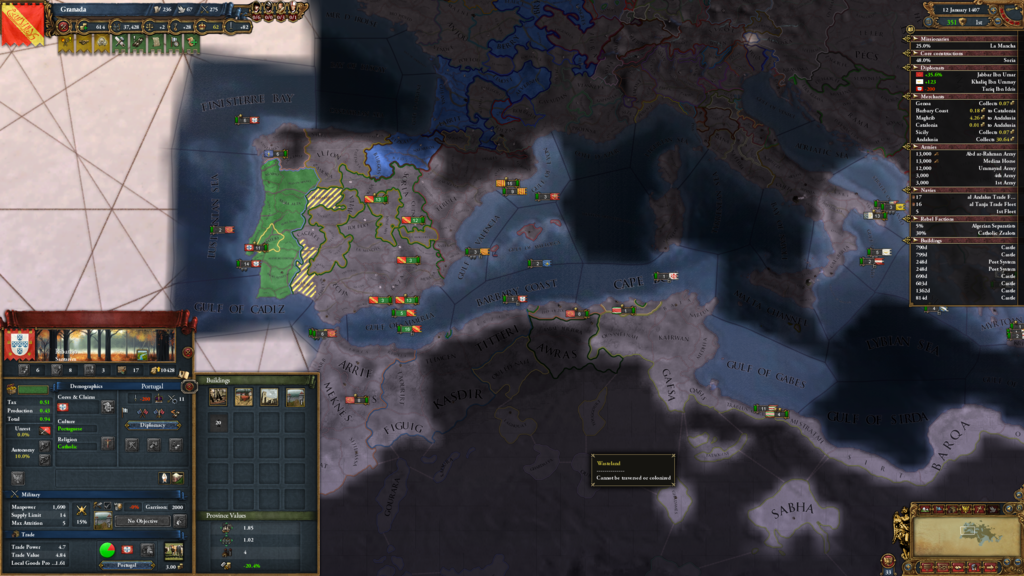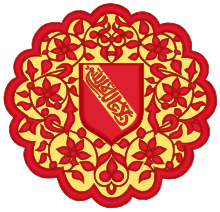
The Nasrids and their Times: Personal Histories and Voices from Granada
Authors Preface
This history is an attempt to tell the story of the house of al-Nasr, or the Nasrids as we call them, using their own words as well as those of contemporaries both in the Sultanate and beyond its borders. While most scholars of history tend to take the meta-level as their field of play, presenting the battles, the births and deaths, and the very lives of the nations they are studying from somewhere around 10,000 feet above the ground, this history is going to attempt a different perspective.
While we will still tell the stories of the battles, the births, marriages and deaths, the evolution of cultures and the very lives of the nations we are studying (first and foremost Granda, but not limited to them by any means). But we will attempt to use the voices of the people from those times to tell the stories - to see the world as they saw the world, to understand why they did what they did, how they reacted to events around them and how they attempted to control or create those events. We are lucky that the Nasrids themselves were prolific writers and archivists - of journals, letters, intra and inter-governmental memos and other excellent primary sources. And this seems to have carried over into the population at large - although most people lacked the formal (and protected) government archives that the Nasrids had available to them, an amazing amount of material has survive. We will dive into the literature to make use of everything we can to tell the stories and hear the voices from the people of these times.
Now, just a few notes on the structure of this book. I will present a few thoughts at the beginning of each chapter just to set the stage. But I will try to let the material we have at hand tell the stories. I will include maps, charts and tables throughout to help illustrate some of the points to help ground us in what was happening in the times we’re reading about - as Mentioned above the goal of this book is to let the voices of the real people inform us of their histories. I will also provide a comments throughout to ensure that we stay anchored to the history of the times, to better understand the personal voices we will hear.
26 Sept 2015
~~~~~
Chapter 1: The Game changes in Iberia
A little background before we begin to set the story of the Nasrids in historical context.
In 711 the armies of Islam under Tariq ibn Ziyad sailed from Ceuta to the southern coasts of Hispania at the invitation of Visigothic nobles feuding with their king, Roderic. Roderic was decisively defeated and killed at that battle of Guadalete. But rather than raid and retreat as they had done many times before, the armies of Islam stayed. With the Visigoths divided and fighting amongst themselves for the crown, the heir of Roderic fled north, and the Muslim armies followed afterwards. Toledo fell that same year, and within a decade all of Hispania except the mountains of the far north was controlled by the armies of the Umayyad Caliphate. The Muslims renamed the land al-Andalus.
In 749, the Umayyad Caliphs in Damascus were overthrown by the Abbasids. All but one, Abd ar-Rahman were killed by the victorious Abbasids; Abd ar-Rahman escaped, and after a journey of almost 10 years (one surely worthy of a book in its own right), he arrived at the shores of Iberia where he proceeded to oust the al-Firhi dynasty to make himself the Emir of Cordoba. For the next 30 year, he slowly extended his rule by force, charm and guile over most of Iberia (but the Christian nations used this period of uncertainty and disruption to extend their holding precariously southward, and we see the rise of Leon, Castile, Navarre, Aragon and Barcelona in these early days.
For almost 300 years the Sultans and then Caliphs of Cordoba ruled in what people have called a Golden Age - literature, art, architecture, science, math and all branches of knowledge flourished throughout the Caliphate. There are major scholarly works fating from this period that were critical for the transfer of knowledge from the Greek and Roman world to the European world of today.
But by 1030, a series of weak Caliphs and strong Viziers had introduced significant instability and competing centers of power. By the time of the last nominal Caliph (Hisham III), the rulers of the major cities and provinces had had enough, and the caliphate tumbled into the First Taifa period. This was a period of strong expansion to the south by the Christian nations - the weakest of the taifas were systematically picked of, played against each other, and in some cases used for leverage only to be conquered themselves later.
In 1086. the al-Moravids of Morocco under Yusuf ibn Tashfin moved an amy into al-Andalus at the request of the hard-pressed taifa rulers. He soundly defeated Alfonso IV, king of Castile and Leon, and annexed the independent taifa rulers to his kingdom. His generals also recovered Valencia from the Christians. But within just a generation the power of the al-Moravids was on he wane. HIs son, Ali ibn Yusuf was defeated by Alfonso VII and then by Afonso, Count of Portugal. This victory opened the way to Lisbon, and with its capture Afonso founded the Kingdom of Portugal, another thorn in the sides of the weakening Muslim rule over al-Andalus. The defeats suffered by Yusuf and then his brother (his short-lived successor) emboldened the al-Mohads, a desert tribe that swept down from the Atlas Mountains to conquer the al-Moravids.
The al-Mohads were not only successful in Atlantic North Arica and al-Andalus; they extended their rule along the Mediterranean coasts to Tunis and to the borders of Egypt. With their rule, al-Andalus was linked again to a vast Muslim state, with trade routes linking the interior of Africa and the sands of Libya to the trade ports of Iberia. Pilgrims move east and west for the hajj, bringing wealth, goods and tales with them. But even with a victory over Alfonso VIII of Castile and Leon in the closing years of the 12th century, by the opening years of the 13th century the combined armies of the Christian nations of Iberia were inflicting defeat on the weakened the al-Mohads, and shortly thereafter rebellions erupted in Iberia and the Third Taifa Period began.
The Third Taifa period was nothing more than a century long retreat for the Muslims of al-Andalus. The Christian kings pushed relentlessly south,and even though there were periods where the dynastic disfunction of the Christian caused them to falter in their forward movement, the general trend was "ever southward." Valencia, Toledo, Badajoz, the entire Algarve, Denia and the entire border to the outskirts of Cordoba itself slowly fell from the grasp of the Muslim rulers.
But in THIS history, this is where the house of al-Nasr comes to our attention. They rose to prominence in Granada, a wealthy city situated at the feet of a vast mountain range that kept it well watered and cool despite the heat of the south. And from this stronghold the Nasrids were able to take control of the southern taifas and construct a stable Emirate in the south, composed of Sevilla, Cordoba, Mucia, Malaga, Algeciras and Granada itself.
Seven emirs ruled in Granada from 1238 to 1354 - the first were long-lived and contributed to the stability of the emirate. But, as had happened since the time of the Visigoths 500 years earlier, palace intrigue and a rebellious and jealous nobility caused disruption and turmoil. Yusuf I (the seventh emir), his father Muhammad IV, his grandfather Ismail I and possibly the two brothers who ruled before Ismail were all assassinated after only a few years on the throne. But Muhammad V, the son of Yusuf I and the start of this history, will prove to be made of more sturdy material.
~~~~
The World of Muhammad V
Religious World
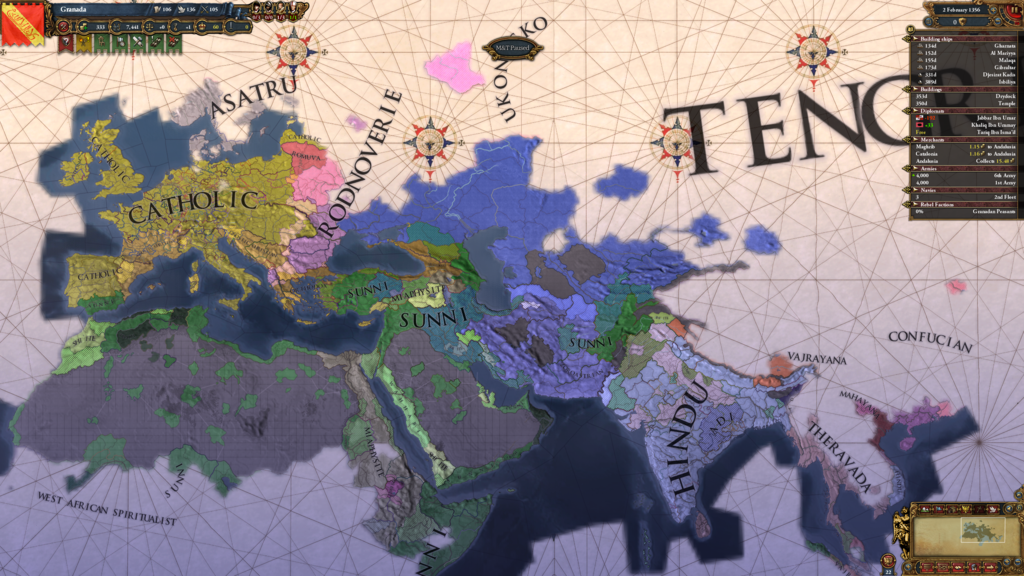
Political World
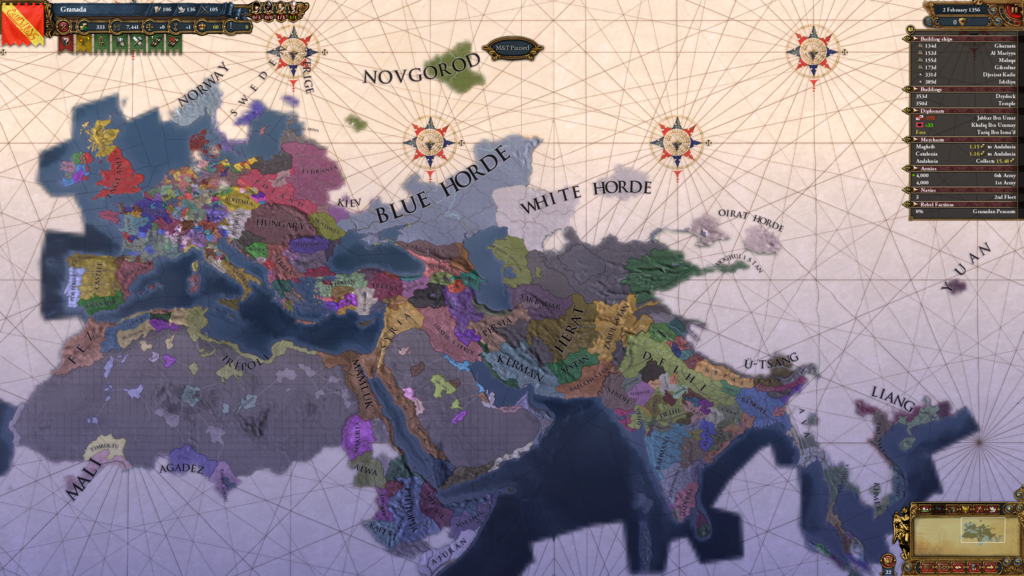
Economic World
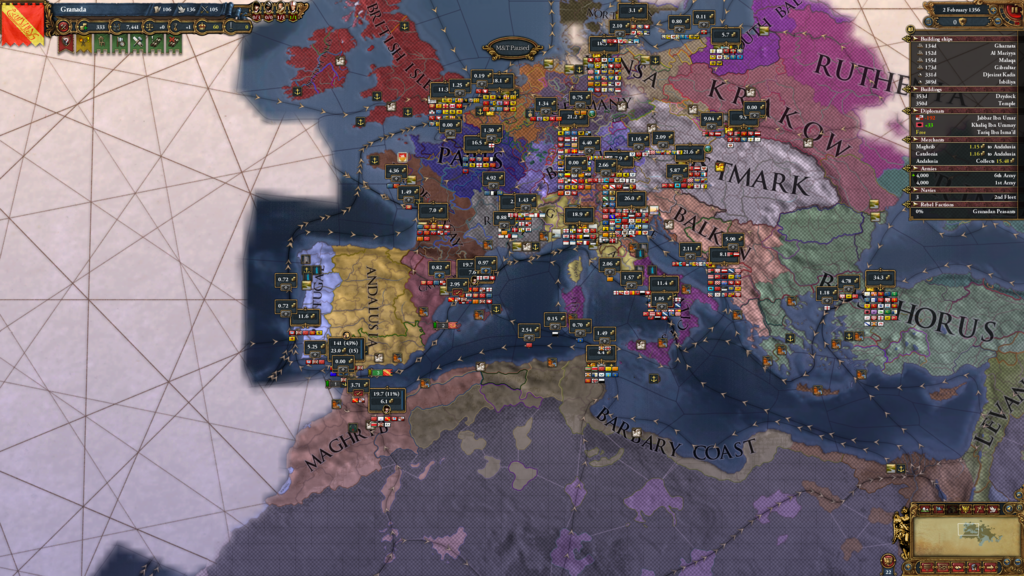
Emir Muhammad V
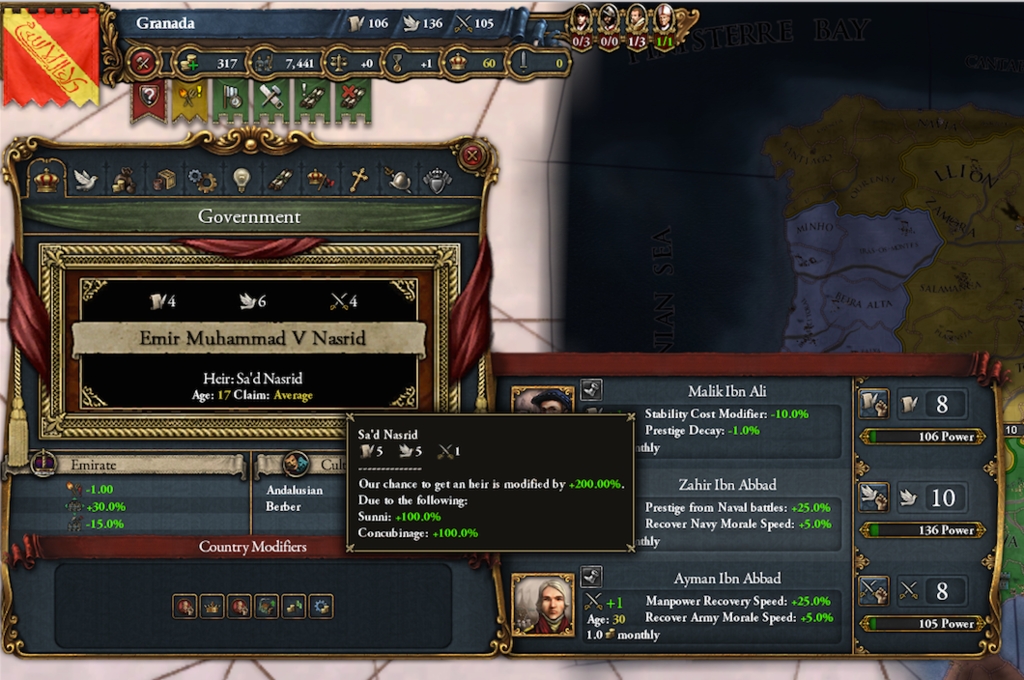
Here’s how a contemporary described Muhammad V.
“…he was fair-skinned, naturally strong, with a fine figure and an even finer character. He had large eyes and straight dark hair, a thick beard (not red and not black, but something in between, like Adb ar-Rahman reputedly possessed), a handsome face and a deep voice that could carry across a crowded room or a large open space and commanded attention. Allah endowed him with an extraordinary intelligence, a good eye for art and architecture, and a curious mind that wanted to know about everything under the skies. He was adamant in the defense of Granada, and determined to restore the greatness of al-Andalus and build the glory of his house. He studied the military arts, and excelled at the game of diplomacy. He was, indeed, the gift of Allah to his people and his time.”
The mid-1300s were time of some religious turmoil in both Granada and the wider Islamic world. Here is one of the earliest commentaries that can be attitude to Muhammad himself.
“The emissaries from the court of the Caliph arrived today. Or should I say the emissaries of the man claiming to be the new Caliph arrived asking Us for our loyalty and religious obedience. I am not a man willing to bend my knee to anyone, and yet I am a loyal servant of Allah so perhaps I must. The old men of the ulema tell me that I must not stiffen my neck in the presence of the men of Allah, but perhaps they are talking about themselves? These are the same men, surely, who conspired to have my father, may Allah bless his soul, murdered while at prayer in the House of Allah! They claim it was a madman, but how can a madman penetrate the innermost parts of the Friday mosque?
But I digress in these musings. The Caliph is the Caliph, and we all owe him the loyalty we owe Allah. And I will need the blessings and protection of Allah to prosper (and indeed, to live) in these turbulent times. So acknowledge I will, but from the throne as the emir of Granda, Defender of al-Andalus and the Sword of Islam, not a penitent on his knees.”
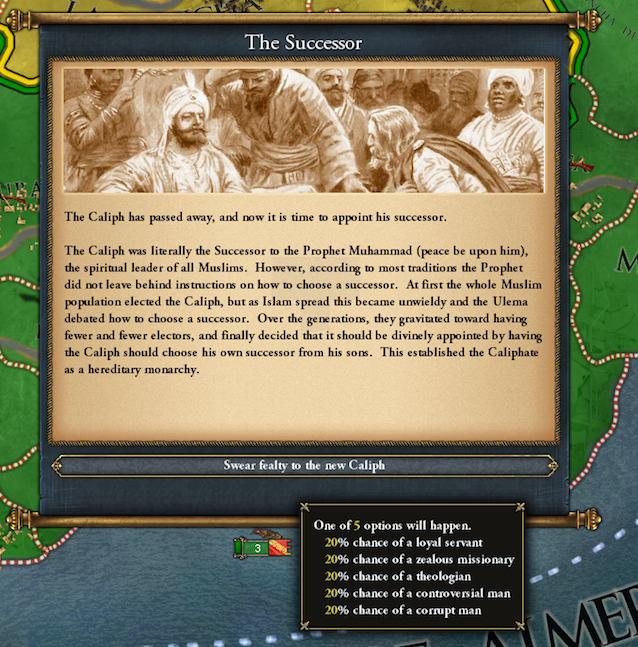
From this time, a private note from Prince Sa’d, the bother of Muhammad, mentions a few interesting facts.
“Dear brother, I have just returned from the market. I observed two fantastical sights. First, the blasphemous Portuguese have once again sent their wicked and deceitful missionaries to our lands, this time to the very gates of the medina itself. They claimed that by the power and authority of their king, their god, and their steel they were here to convert all of us, even yourself! I told them to pray to their false god for help (but not to count on it as false gods rarely respond), proclaimed that theire steel would most surely fail them when opposed to the steel in my hand, and that the only recognition I would grant their petty king ruling in his hall of dirt and twigs was as the recipient of their heads!
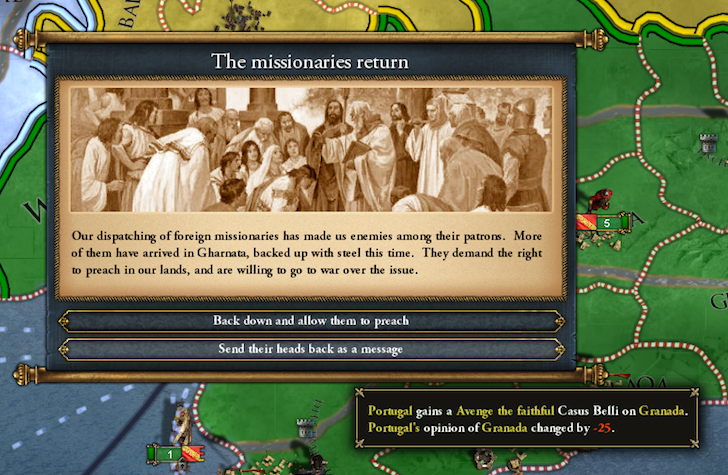
"I would most certainly have given them a taste of steel in their skulls, but a Sufi scholar stepped out of the crowd and bade me stop. He had something - a presence, perhaps - that made me pause (and you know I rarely pause in ay action I take in defense of you, the crown and Allah). He told me that Allah looks for mercy as well as justice, and to punish these men for obeying their king would be to inflict punishment unjustly. They were, after all, obeying their king, which is what every king requires of all his people. Thinking that this was a wise man, I sent them home under guard to the border, and with a message to the Portuguese king that he should prepare himself for the punishment of Allah, which would surely arrive at the point of the sword of Islam. They are other stories I will tell you when I see you next, be assured. But I am send this note with the Sufi mystic of whom I spoke. Please welcome him with the love that Allah has given to you.”
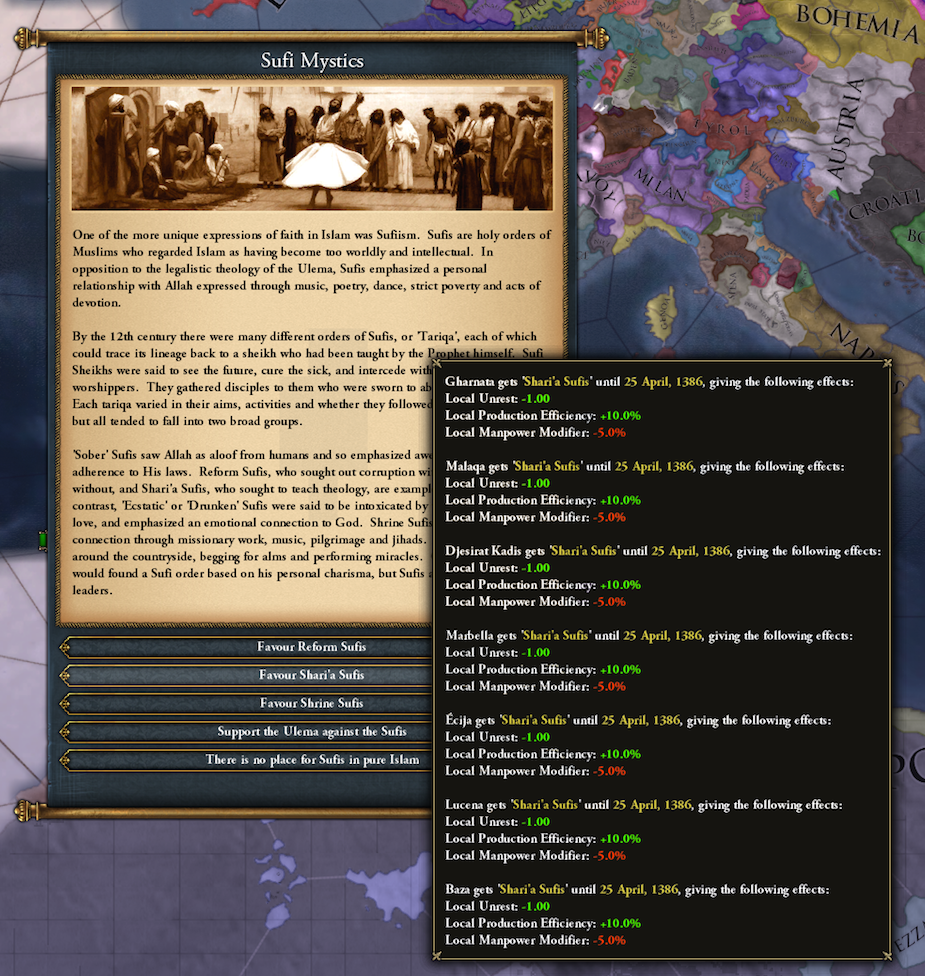
Under his father and grandfather, the armies of Granada had been neglected under the terms of the truce with Castile that had been negotiated by Muhammad IV. But Muhammad V was determined to rectify this. By 1359, various cities around the Emirate were able to report to Mohammad that “our efforts to find, train and equip men to create an army worthy of your name is compete. In fact, men have come from all corners of the Emirate, willing to take up the banner of the pomegranate and the green banner of Allah to defend the honor of Allah and the glory of Granada.”
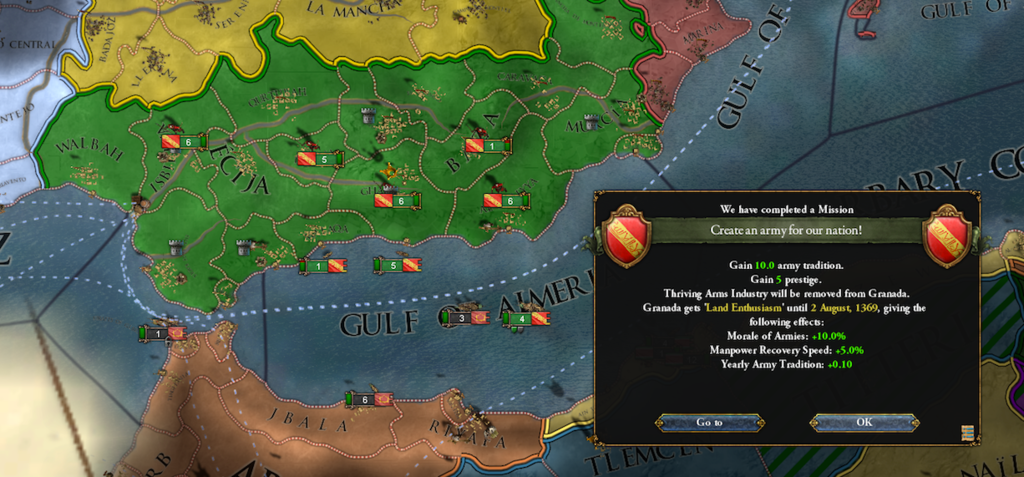
In 1362, these men were put to the test, as described in these letter from officials in Marbella and the capital.
“Your most royal highness, it is with great alarm that I send this message to you. A man claiming to be a distant relation, descended in fact from your ancient ancestor Nasr, has raised an army from the countryside around Malaga and your royal fortresses - the fools in the countryside have fallen for his tales of murder, ruin and exile, and flock to his banner. They are just rabble, but they are marching on us now. The city is loyal, the walls are strong and well-manned and the gates are sealed. But send help, we can hold these fools off for a while but we will fall without your succor.”
“Emir, the deceitful nobles of your capital itself have risen up in your absence to overthrow you. If their intention was to find and kill you, their timing was inexpert as you are safe in Cordoba now. But if their intention is to capture the city and install themselves (or a puppet) on the throne, perhaps their timing is more expert - you re not here to prove to the populace that you are alive, and given time they will bring the people to their side through falsehoods and bribes. For now the walls of the al-Hambra fortress will hold - we have good supplies as well as plentiful water from the mountains above. And the garrison is loyal. But send your armies to defend us, and come quickly after them to show the people you live and still rule in Granada. The blessings of Allah on you for safety.”
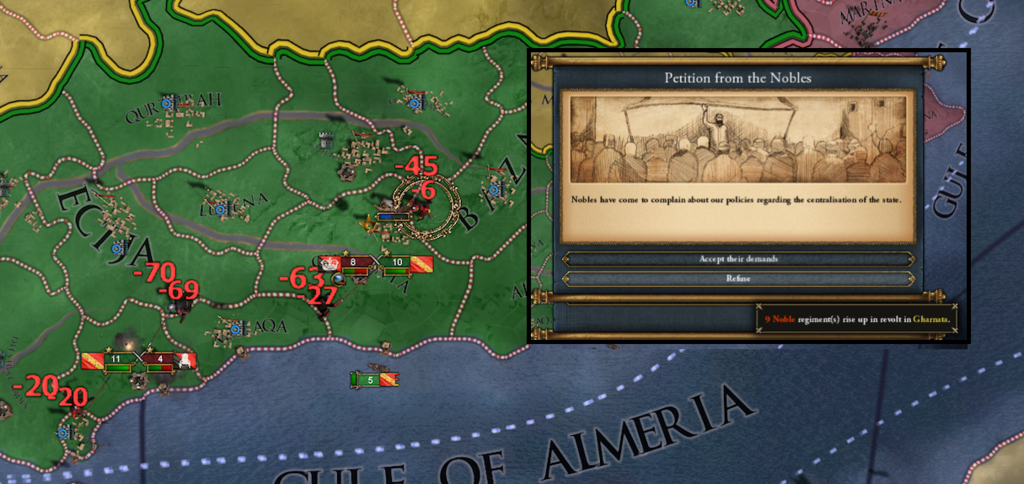
Muhammad V survived these crude attempts to dislodge him from his throne. But it taught him a good lesson - with no external focus for the restless nobility he would be vulnerable (as his father and grandfather and other ancestors before him had been) to the machinations and wickedness born of idleness of the nobles and the warriors of Granada.
It was at this moment that fate (or the blessing of Allah) arrived and gave Muhammad V the opportunity he craved.
From the Ambassador to Barcelona we have this message to the court in Granada;
“Royal Highness, may Allah set his glory on you and Granda. Peter of Aragon marches today to war with his sworn enemy Peter of Castile. The armies left the city as the first light of the morning sun rose above the horizon. I heard the first rumblings of many men as I completed my morning prayers. As soon as I was done, I rushed up to the balcony to see the case of the noise. I was astounded to see a seemingly endless river of men streaming toward the city gates. Their helmets, shields and swords glinted in the early morning sun as they marched below my house. The people, such as they were at such an early hour, raised jubilant voices in support of the King as he led the men to war (although I believe Peter will return to the city once the army is well on its way to the mountains of Soria."
Muhammad had been waiting for this moment. In a letter to Sa’d, he says:
“Dearest brother, the time has come for us to act as we have long planned. You will lead one army north to attack the fortress in hills just beyond the borders of La Marche - focus on Campo de Montiel. Your ultimate goal, of course, is to seize the gold mines in La Marche, but the fortresses in the hills bar the way. Do not delay - while Castile is busy fighting Aragon in the hills of Soria we must act to obtain the wealth of La Mancha. Order the other main army to Badajoz to gain the silver mines there, and then to attack the fortresses in Caceres. Cavalry troops can occupy the small towns and hamlets, but be aware that the fortresses will hinder our way until they are reduced.
And remember, you must speed north as quickly as possible - to gain what we wish to gain we must reach the plains of Castile before the armies of Aragon. May Allah speed and guard your way. Our trust is with you implicitly - go and take back what is ours with the blessings of Allah.”
From time to time, Prince Sa’d sent battlefront updates to Muhammad charting the success (and lack of success) of the Granadan war effort. Most are along the lines of “the hamlets and towns of XXX have been surrendered into our hands and we are moving to the next” or “the great fortress of Campo de Montiel still resists us, but the garrison is showing signs of fatigue. We will persist and Allah WILL grant us victory.”
Two years after the march to war, Castile suffered an even greater blow from within while trying to fight off Aragon and Granada. Henry of Trastamara, an illegitimate brother of Peter of Castile who claimed the throne of Castile asserted his independence and rights to the throne by declaring war on his brother. Vast numbers of towns and fortresses, harbors and villages declared for Henry, cutting the territory bowing the knee to Castile in half.
Muhammad sent this urgent missive to Prince Sa’d.
“Brother, I received the news yesterday that our armies have captured the heights of Campo de Montiel. My thanks to Allah, to yourself and our brave men. I am told that disease broke out in the ranks of the men - I have sent doctors with this message and you must let them do what they can to help. They are armed with all the wisdom available to us, which is significant.
But you must move quickly to Toledo. Henry, the bastard of Castile, has declared against his brother. Several provinces to your north have declared for him; beware of this troops. They could be moving toward you, but I believe he is moving north to attack Peter first. An attack on Aragon or our armies would only help his brother while weakening him for the eventual battle. Toledo, the ancient capital of the Visigoths and it’s powerful fortress have declared for Henry, but remain surrounded by lands loyal to Peter. We MUST get to Toledo before Aragon or Peter, and we must take it. If we can seize it we will be the new Tariq ibn Ziyad.
Although beyond my wildest dreams when we launched this war to reclaim that which is ours, Toledo is such a prize that surely Allah has driven Henry mad with greed and pride Why else declare this war now, especially when the Portuguese cousins of Peter are still undeclared and will perhaps come to the aid of him? To lose Toledo to Aragon or Peter would be unfortunate; to gain Toledo, though, would show to all the world that Allah is the only God in heaven and that we are under His protective wing, like a chick under the wing of its mother hen. Advance with speed, leave the sick and wounded in Campo de Montiel. I will send reinforcements to meet you in Toledo.”
It took several years, but by 1365 Prince Sa’d was able to journey to Granada to give his brother a conclusive report of Granadan victories against both Trastamara and Castile. While Aragon has captured the heights of Soria and then streamed both south and north, Sa’d and his fellow commanders had captured all of Castile as far north as Toldeo in the center, and Leon in the west. And Muhammad discovered that Trastamara had made Toldeo his capital, in another fit of madness or pride - it was a major victory.
Although Henry had captured vast territories from his brother in the north, the loss of his capital brought him to the negotiating table, where he surrendered the golden city. When Muhammad was told the news, he exulted “the golden city on its hill is now in the hands of Allah and His faithful followers. The great fort and the surrounding towers will protect the heart of Granada from invaders now, where it once was a spear or an arrow aimed directly at us. Surely Allah is Great, and he covers his followers with the blessings of the earth while smiting his enemies with madness and darkness of sight.”
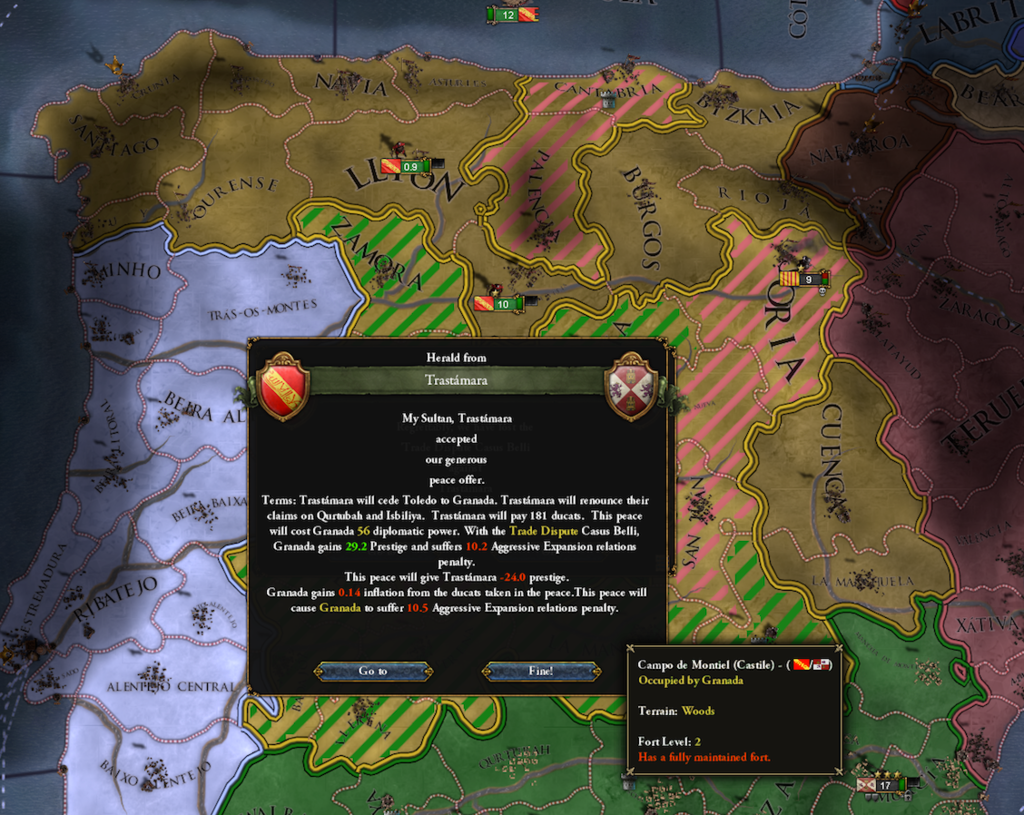
A few days later, the following report reached the court from Prince Sa'd.
“Peter of Castile, like his bastard brother, is insane by the blessing of Allah without doubt. He rants and raves, raging against his fate, his losses, his rebellious bastard brother, his cousins of Portugal who failed to come to his aid, against Aragon for pulling all of Iberia into this war, and against you my most royal brother for the immense victories that you have gained. Allah is great, and the force of your men at arms is also great.
He knows he is defeated on all fronts. Even as he put a brave face on for the negotiations, pretending to resist our demands, news arrived on an almost daily basis that nobles, towns, fortresses and entire provinces are falling to his brother. Today he received word that his capital (if you can call that small city of mud streets and huts a capital) had welcomed the Bastard in with open arms - this as your armies were besieging it. The change of allegiance meant nothing to us - we were content to pursue its capture regardless of which flag flew above its walls. But it was the final straw for Peter.
He knows that without cities and fortresses and wealth he cannot fight his brother. And everything still loyal to him is under the control of Aragon or your loyal forces. Aragon resists the overtures of peace that are surely going out - there is too much bad blood between these two Peters. And so be has resigned himself to accepting our most generous terms. He has agreed to surrender the gold mines of La Mancha (which establish our control to Toledo, which I have been told the Bastard has surrendered to us), the silver mines of Badajoz, and the two fortresses of Caceres and Campo de Montiel.
Truly Allah is with us. And also truly you saw the truth about these fortresses. Our fathers' fathers lost them to the Christians generations ago, and from that day to this day they have been pikes pointed at the heart of our lands. But with them within our grasp once again, we have turned the tables on the Christians, and now stand with daggers against their hearts. With Toledo in our grasp we have a belt of fortified seats of power from which we can guard against the Christians and ensure the peace of our own heartlands.
We all join with you in praising Allah. We return to your side as quickly as we can, bringing the army with us to receive your blessing.”
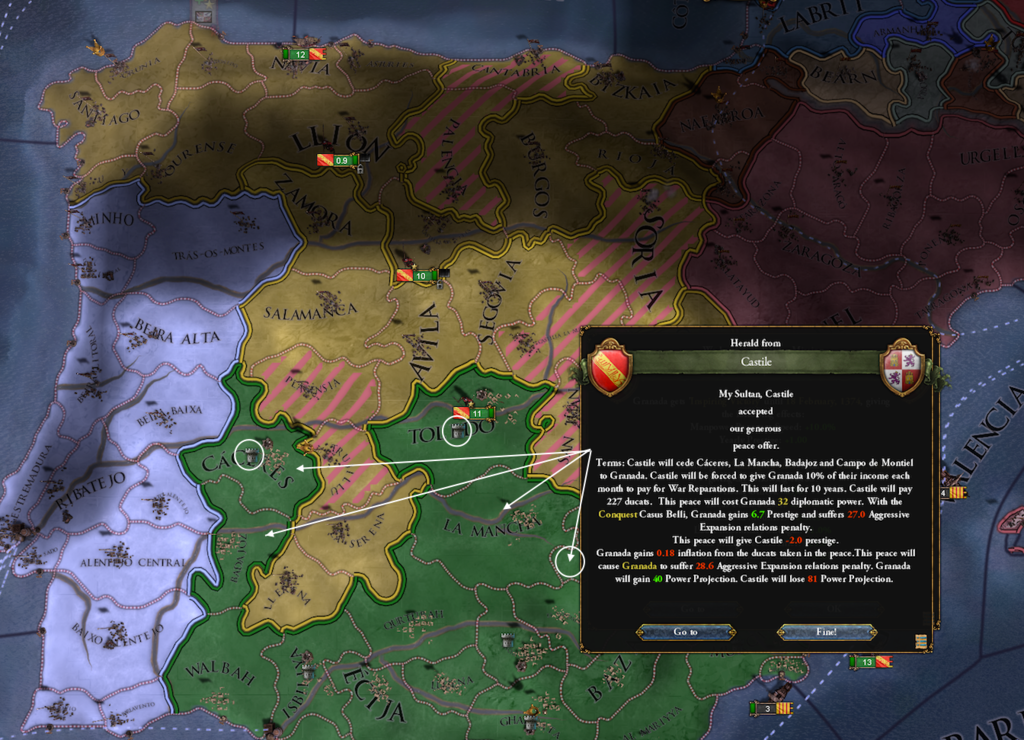
When the news of Castile’s capitulation arrived, the entire population erupted with joy and celebration, rushing to the Friday Mosque to offer thanks to Allah for the great victories over the Christians. And then then rushed to the gates of the palace, praising the wisdom of Muhammad and the bravery and loyalty of Prince Sa’d and the armies of Granada. Muhammad, in response to the cries of adulation, praise, and gratitude of the people announced three things:
“My loyal subjects and fellow pilgrims on the road to find Allah and his blessings, your words touch me. I will tell you what I will do to thank you, reward you, and hear you.
First I have given treasure, honey, sweets and all manner of good things to my loyal officers to be distributed to each of you. Your faithfulness and loyalty has touched my heart.
Second, I declare that on this day we will build a new mosque to Allah, one big enough to hold all His worshipers under its vaulting and spacious roof, with a minaret that will guide people here from across the plains and call each of us to prayer.
And third I will you this - I have heard your calls, and declare that just as our great ancestor Abd ar-Rahman threw off the title of Emir of Cordoba and became the Sultan of al-Andalus, we throw off the title or Emir of Granada and claim the title Sultan. The glory that Allah has blessed us with demands we take this honor into our hands which we willingly do.”
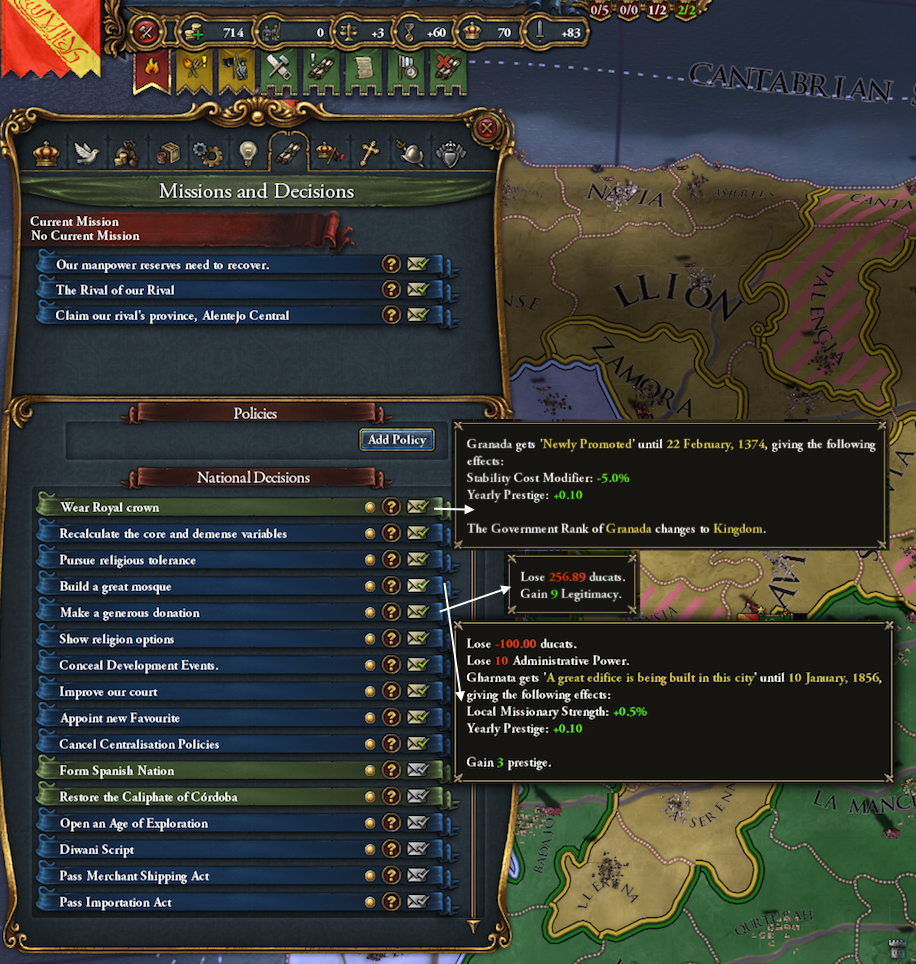
Shortly after peace was agreed with Peter of Castile, Peter of Aragon made peace with Peter of Castile with only one condition - that he abdicate the throne and go into exile. Having lost the support of even more nobles with the surrender of so much wealth and so many strong places to Granada, Peter of Castile had no choice but to accept. Trastamara ascended the throne of Castile, Peter of Aragon returned home, and Iberia settled into a fitful peace.
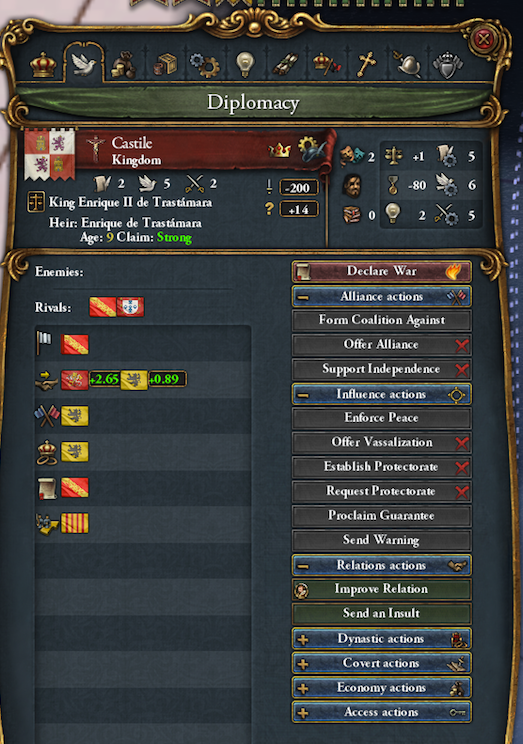
~~~~~
Last edited:
- 2


